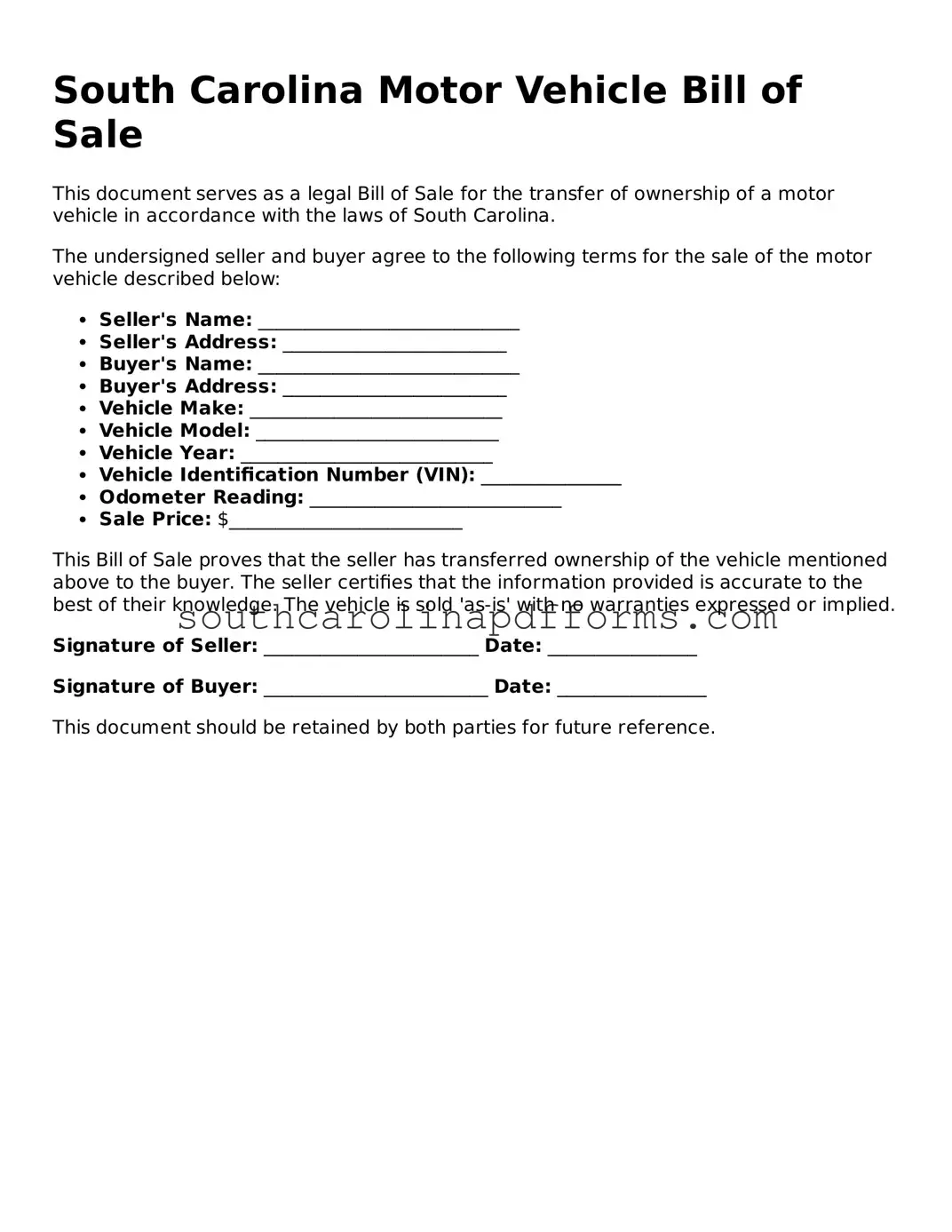Attorney-Approved South Carolina Motor Vehicle Bill of Sale Document
The South Carolina Motor Vehicle Bill of Sale form is a legal document that records the transfer of ownership of a motor vehicle from one party to another. This form provides essential details about the vehicle and the transaction, ensuring that both the buyer and seller have a clear understanding of the agreement. Completing this form is an important step in the vehicle sale process, as it protects the interests of both parties involved.
Access Motor Vehicle Bill of Sale Here
